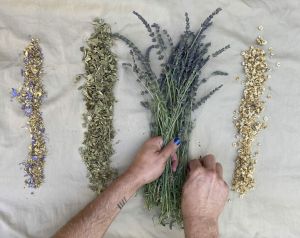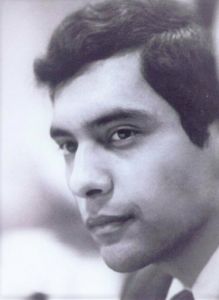
HÉCTOR CALDERÓN WAS 19 IN 1965, when he was hired to help compile what would later become the Archive of Healing. He had entered the University of California Los Angeles hoping to become an accountant. That all changed when he started working for Professor Wayland Hand, the Director of UCLA’s Center for the Study of Comparative Folklore and Mythology, who had just launched an ambitious project compiling folk remedies from around the world. The remedies ranged from folktales and incantations to recipes and sayings around food
Calderón spent hours as a research assistant digging through ethnographic studies, noting down each remedy on an individual notecard and passing them to Hand to file in huge wooden trays. Calderón also collected his own Mexican-American family’s folk traditions for a class project. “Why do you want this stuff?” his family asked, surprised their knowledge was interesting to academics. At the time, of UCLA’s 25,000 students, only 50 or 60 were Mexican American. Calderón, too, was initially shocked that working-class people’s traditions would be valuable to a university professor. But Hand was an enthusiastic mentor, and Calderón quickly caught the countercultural energy of the 1960s university. “No way could I do business anymore—that wasn’t my world,” he says.

Calderón ended up going to graduate school in literary studies. Hand kept quietly working on the Archive. Upon his retirement, he passed the data to another professor, Michael Owen Jones, who got a grant to digitize the material in 1996. After Jones retired, the project sat in limbo, preserved on UCLA’s servers, for years.
To Read Full Article Click Here.
